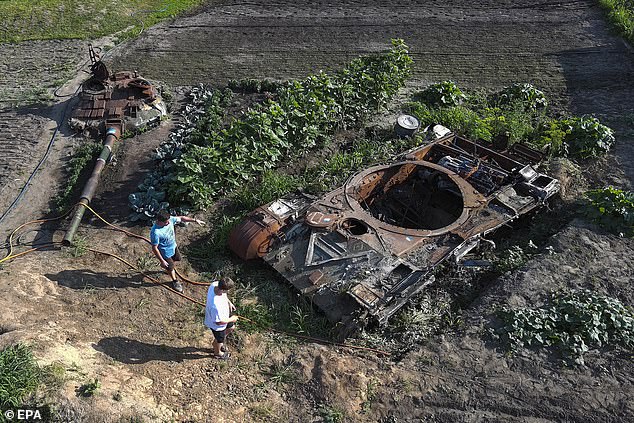
Russian Foreign Minister Sergei Lavrov asserted that Russia would take “appropriate” actions in response to the potential accession of Sweden and Ukraine to NATO, emphasizing the protection of Russia’s “legitimate security interests.” Lavrov’s remarks came as global leaders convened in Vilnius, Lithuania for the commencement of a NATO summit.
The summit aimed to convey a “positive” message regarding Ukraine’s aspirations to join the alliance, amidst Sweden’s progress following extensive deliberations. Ukrainian President Volodymyr Zelensky urged immediate action, denouncing the absence of a definitive timetable as “unprecedented and absurd.”
Although NATO membership typically entails a protracted process, observers highlighted the formidable challenges Ukraine would confront amidst ongoing conflict in the region. The conflict has reshaped European alliances, prompting traditionally neutral nations like Finland and Sweden to reconsider their positions.
The Kremlin voiced concerns over Sweden’s anticipated NATO membership, warning of adverse implications for Russian security. Lavrov indicated that Russia would adopt measures akin to those enacted following Finland’s integration into the alliance.
Turkish endorsement of Sweden’s accession to NATO, following its previous opposition, raised eyebrows. While Moscow acknowledged differences with Ankara, it also expressed intent to foster bilateral relations.
Turkey’s past objections to Sweden’s NATO bid stemmed from allegations of leniency towards terror groups, particularly Kurdish militants. To assuage Turkish concerns, Sweden and Finland pledged cooperation in combating terror-related activities.
However, diplomatic tensions escalated when pro-Kurdish activists in Sweden incited controversy by burning effigies and religious texts, prompting strains in bilateral relations. Sweden’s extradition of a Kurdish refugee to Turkey further exacerbated tensions, leading Finland to contemplate independent NATO membership.
Russia interpreted these rifts as indicative of internal discord within the alliance, a notion refuted by the White House. President Joe Biden reaffirmed NATO’s commitment to collective defense, underscoring the alliance’s pivotal role amidst geopolitical challenges.
Meanwhile, Ukrainian President Zelensky lamented the uncertainty surrounding Ukraine’s NATO prospects, attributing it to Russian-sponsored “terror.” British Prime Minister Rishi Sunak echoed sentiments for Ukraine’s eventual integration into NATO, emphasizing security assurances post-conflict.
German Chancellor Olaf Scholz reiterated the imperative of providing Ukraine with effective security guarantees once peace is restored, signaling concerted efforts within NATO to address regional instability. As leaders convened in Vilnius, discussions centered on fortifying collective security and advancing Ukraine’s aspirations within the alliance.
RELATED ARTICLES
- After Fooling the People to Reelect Putin, Russia now announces More Cannon Fodder Mobilizations
- Russia Fires Barrage of North Korean Missiles at Kyiv After US Visit
- Ex-Wagner fighters Join Free Russia Army's Battle to Liberate Russia from Putin Occupation
- Hungary Becomes First EU Country to Congratulate Putin for Winning the 'Elections'
- Putin says NATO Troops are already in Ukraine But Russia is Still Winning











